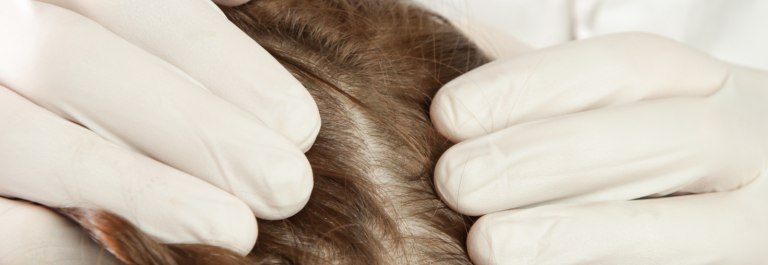Scalp psoriasis is a common skin condition affecting millions globally. Characterized by red, scaly patches on the scalp, this condition can cause significant discomfort and distress. Among the various symptoms and concerns related to scalp psoriasis, one frequently asked question is: Does scalp psoriasis smell bad?
In this blog, we'll explore the relationship between scalp psoriasis and unpleasant odors, including:
-
Factors that might contribute to scalp odor in individuals with scalp psoriasis.
-
Effective treatments and care practices for managing scalp psoriasis and reducing any associated unpleasant smells.
-
Practical tips for maintaining scalp hygiene and health to minimize flare-ups and discomfort.
Read on to discover how you can address scalp odor, manage scalp psoriasis effectively, and achieve a healthier, more comfortable scalp.
Does Scalp Psoriasis Cause a Stinky Scalp?
While scalp psoriasis itself does not directly cause a bad odor, several associated factors can contribute to an unpleasant smell. The presence of scales, dead skin cells, and inflammation can create an environment where odor-causing issues might develop.
Factors Contributing to Scalp Odor
Dead Skin Cells and Excess Oils
Scalp psoriasis leads to the accumulation of dead skin cells and excess oils. The thick scales formed from accelerated skin cell turnover can trap sebum produced by the sebaceous glands. This excess oil, combined with dead skin cells, can create a breeding ground for bacteria and fungi, potentially leading to an unpleasant scalp smell.
Fungal Infections
Conditions like seborrheic dermatitis, which shares symptoms with scalp psoriasis, often involve fungal infections, specifically yeast infections. The fungus Malassezia, common in seborrheic dermatitis, can thrive in oily environments, contributing to a stinky scalp.
Excessive Sweating and Poor Hygiene
Excess sweating and poor hygiene can exacerbate scalp odor. Excess sweat and oils can mix with the dead skin cells and potentially cause unpleasant smells. If hair washing is infrequent, the buildup of sweat and oils can lead to a smelly scalp.
Skin Irritation and Inflammation
The inflamed and irritated skin typical of scalp psoriasis can be more susceptible to infections and bacterial growth. This irritation can contribute to a stronger, more unpleasant scalp odor.
How to Manage Scalp Odor
Managing scalp odor involves addressing both the psoriasis itself and the factors that contribute to unpleasant smells. Here are some effective strategies:
Maintain a Consistent Hair Care Routine
Regular washing of your hair is crucial. Use a mild shampoo that is designed for sensitive scalps. Medicated shampoos containing ingredients like zinc pyrithione can help manage psoriasis and reduce fungal growth.
Incorporate Essential Oils
Natural oils such as tea tree oil, aloe vera, and apple cider vinegar have antifungal and antibacterial properties that can help manage scalp odor. Add a few drops of tea tree oil or apple cider vinegar to your shampoo or dilute with a carrier oil and massage into your scalp.
Address Excess Oils and Sweat
If you experience excessive sweating, ensure that you wash your hair regularly to remove excess sweat and oils. Opt for shampoos that help manage an oily scalp and reduce buildup.
Be Mindful of Hair Products
Some hair care products can exacerbate scalp issues. Avoid products with harsh chemicals or heavy fragrances that may irritate your scalp. Instead, choose gentle, sulfate-free shampoos and conditioners.
Consult a Doctor
If you notice persistent scalp odor despite following a good hair care routine, consult a healthcare professional. They can help identify any underlying fungal infections or other issues contributing to the smell and recommend appropriate treatments.
Healthy Diet and Lifestyle
A balanced diet and proper hydration can support skin health and potentially improve symptoms. Avoid excessive consumption of foods that can trigger inflammation or hormonal changes.
Achieve Freshness and Comfort with Effective Scalp Psoriasis Management
With the right strategies for scalp care and treatment, you can effectively manage scalp psoriasis and alleviate any associated odors. Implement these tips to reduce flare-ups, maintain a clean and healthy scalp, and enjoy greater comfort and freshness. Start taking control of your scalp health today!










